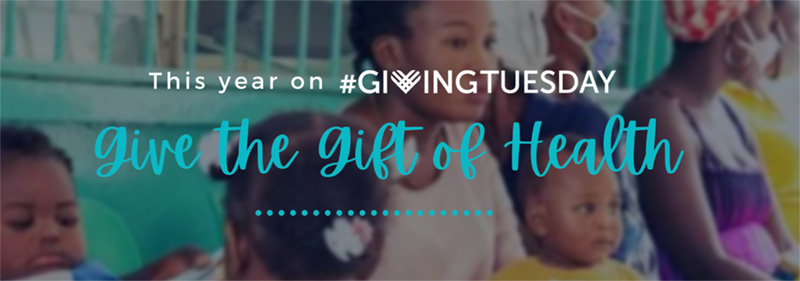C2C is looking for a Programs Director to oversee all Ministry of Health-affiliated programs including community health, maternal health, and sexual & reproductive health! Please review the description below, and if you think you are a good fit, send your CV, cover letter, and three references to [email protected].
Category Archives: Uncategorized
A Message of Hope from Dr. Richard and Racha
C2C’s Chief Medical Officer, Dr. Wilnick Richard, and Managing Director, Racha Yehia, share a message of hope for our supporters and for the people of Haiti.
From all of us at C2C, we are hopeful for a better and brighter new year for Haiti.
An Update From Racha, C2C’s Managing Director
Four-month-old twins and a two-year-old; three children under three sums it up for me. On May 10th of this year, I gave birth to twin girls in the Dominican Republic. YES, the Dominican Republic. This is also where I gave birth to my oldest daughter. Such excitement, joy, and happiness were created from growing my family.
After three months of parental leave, I have returned to my new normal life, home in Haiti, and back at work. Lately, I have been reflecting quite a bit on how fortunate I am to be able to travel 150 miles in the comfort of my air-conditioned SUV, to another country, simply to give birth in a modern health facility. This reality is a luxury in northern Haiti. This is also why I was so looking forward to coming back and continuing the various projects we have going on at C2C so that someday we can make my luxury a norm in Haiti.
Unfortunately, it is easier said than done. Today, the country is currently going through severe civil unrest. The people are frustrated.
Frustrated that there is a constant lack of fuel.
Frustrated that the cost of living is continuously increasing.
Frustrated that some foods have surpassed a 50% increase in price.
Frustrated that the reopening of schools has been delayed until October.
Frustrated that the government is not doing anything to lessen this burden on its people.
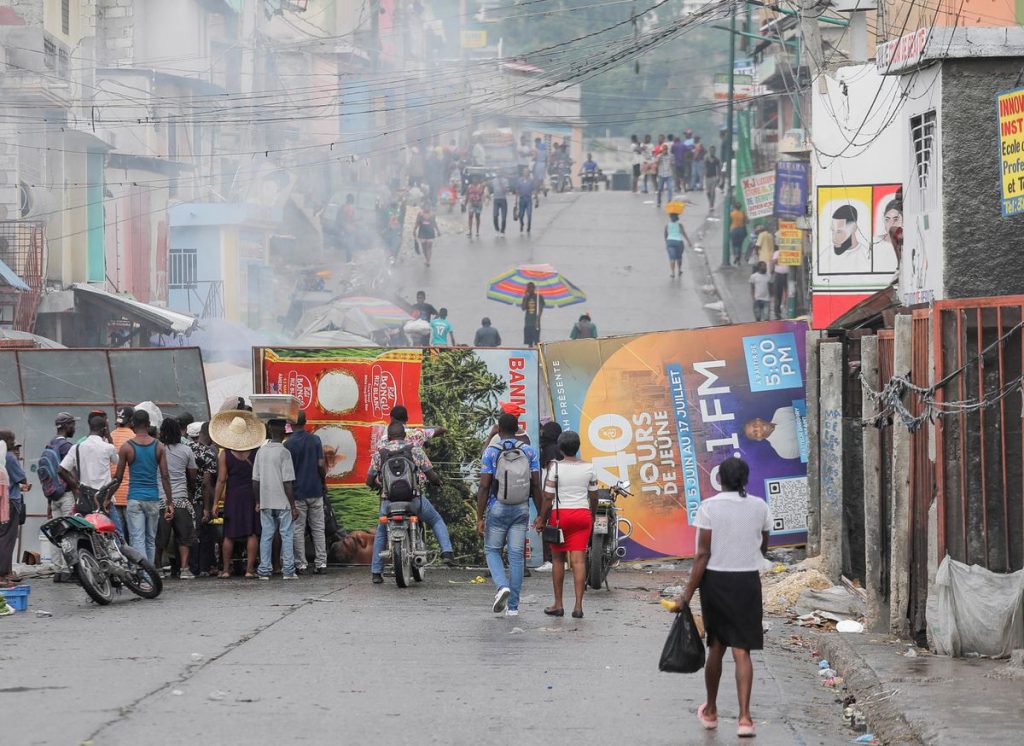
For the past two weeks, we have had protests, roadblocks, and barricades all over the country as people demand change and improvement to the current situation. We had to, unfortunately, close some of our clinics for several days due to a lack of security. It is often unsafe for employees and patients to travel to our clinics. We have had to be very vigilant with fuel since there has not been any in the gas stations for weeks. We have had to pay transportation stipends to our employees because they were struggling to afford to come to work due to the high inflation of public transportation prices.
I see and understand the struggle that the vast majority of the population is going through. I agree there needs to be change, but unfortunately, voices are only heard when violence, vandalism, and riots are part of the equation.
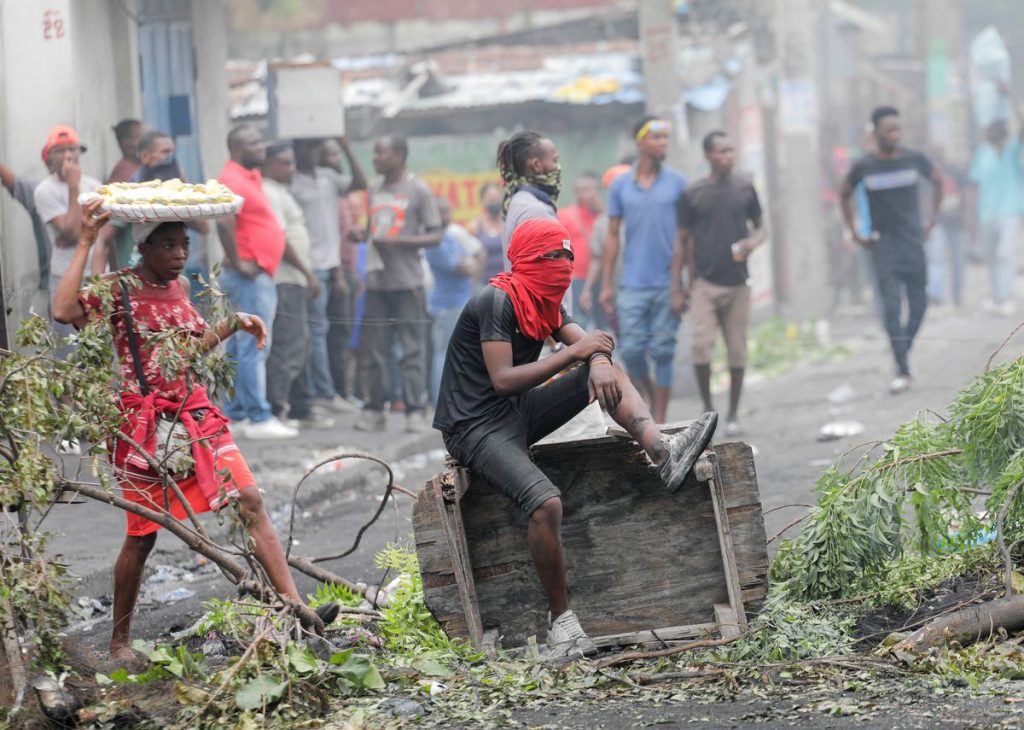
I was looking forward to coming back home to Haiti, getting back to work, and being part of a system of change: a system focused on improving health care for the Haitian population. At C2C, we make it an obligation to provide every patient that enters our clinics with the highest quality of care and every person we meet in the community with the resources they need to better their health.
As we pass through this difficult period in Haiti, I am working toward the vision that one day all women will feel secure and comfortable giving birth in Haiti. We will work tirelessly to accomplish getting over 85% of all children fully vaccinated and to reduce the burden of the most common communicable and noncommunicable diseases.
Thank you for supporting C2C’s work no matter what is going on in Haiti.
Without our loyal donors, we would not be able to provide quality care to thousands of people.
With the warmest regards,
Racha Yehia
Managing Director
Context and Community: Developing a Sexual and Reproductive Health Program
C2C was recently featured in Knowledge Success, a global project led by a consortium of partners and funded by USAID’s Office of Population and Reproductive Health to support learning, and create opportunities for collaboration and knowledge exchange, within the family planning and reproductive health community.
Racha Yehia, C2C’s Managing Director, was interviewed about C2C’s new comprehensive sexual and reproductive health education program and gave insight into what it was like piloting a course from the ground up–discussing concerns with community members, creating a curriculum from scratch, and ultimately teaching the course to young women in our catchment area.
Read the full interview here: https://knowledgesuccess.org/2021/07/27/context-and-community-developing-a-sexual-and-reproductive-health-program/?utm_content=174345564
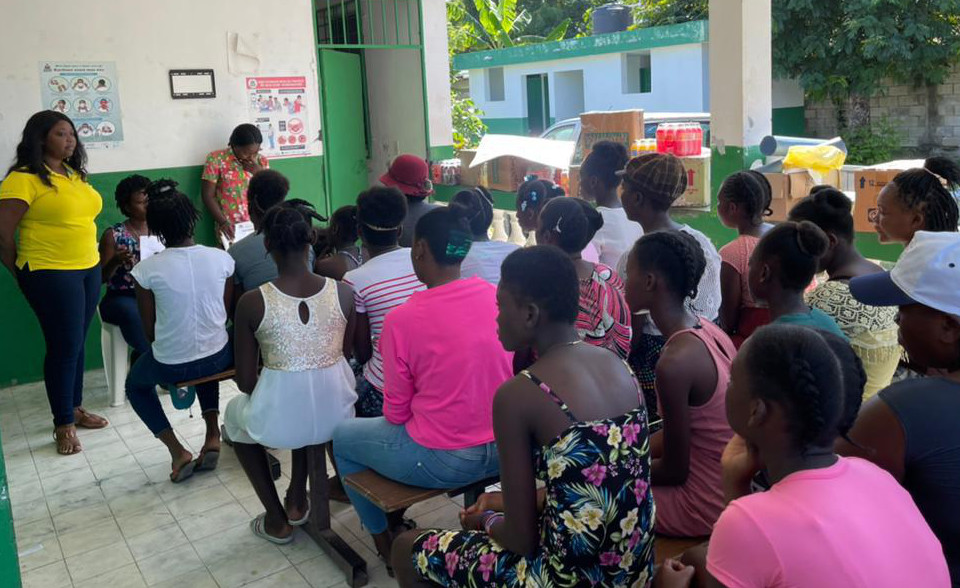
Devastating Earthquake Hits Haiti
On Saturday morning, a magnitude 7.2 earthquake violently shook Haiti, approximately 16 miles west of Port-au-Prince, Haiti’s capital. This most recent disaster is a devastating blow to an impoverished country reeling from a presidential assassination last month and still recovering from the disastrous earthquake not more than 11 years ago.
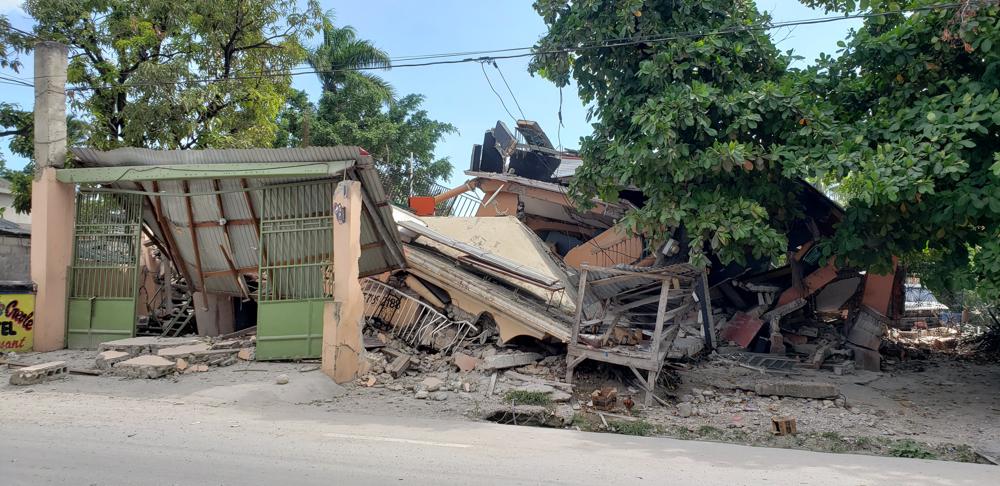
We are safe and feel grateful that the north of Haiti was spared. We are concerned for our neighbors in the south of Haiti as the death and injury tolls are rising and many are still searching for missing friends and loved ones, as well as for resources, medical help, and basic necessities like water.
According to Haiti’s Civil Protection agency, at least 1,297 people died and 5,700 people were wounded, along with major damages to homes, trapped victims, chaos and overwhelmed hospitals in three departments in the southern part of the country. Many public buildings (hospitals, schools, hotels, churches, etc.) suffered damage or collapsed.
Currently, Haiti is bracing itself for Tropical storm Grace which could bring flash-flooding and mudslides today, which could complicate things further for the already-vulnerable country. The unsolved assassination, a leadership vacuum, severe poverty and systematic gang violence in parts of Haiti have left the government dysfunctional and ill prepared for a natural disaster.
We urge everyone who is interested in helping Haiti to support local Haiti-based organizations that are working in direct response to help communities and areas affected by the earthquake.
Here at C2C, along with local partners and friends, we are mobilizing to distribute emergency relief including critical medicines, medical supplies, hygiene kits, water purification kits, and personal protective equipment.
If you would like to help, please click to donate towards relief supplies that we will procure and purchase locally to go to affected areas.
We will keep you updated as we learn more and as things develop on the ground.
Thank you all for your messages and for all you do to help the people of Haiti. We appreciate your support and friendship!
Interview with C2C’s Managing Director Racha Yehia: Developing a Sexual & Reproductive Health Program
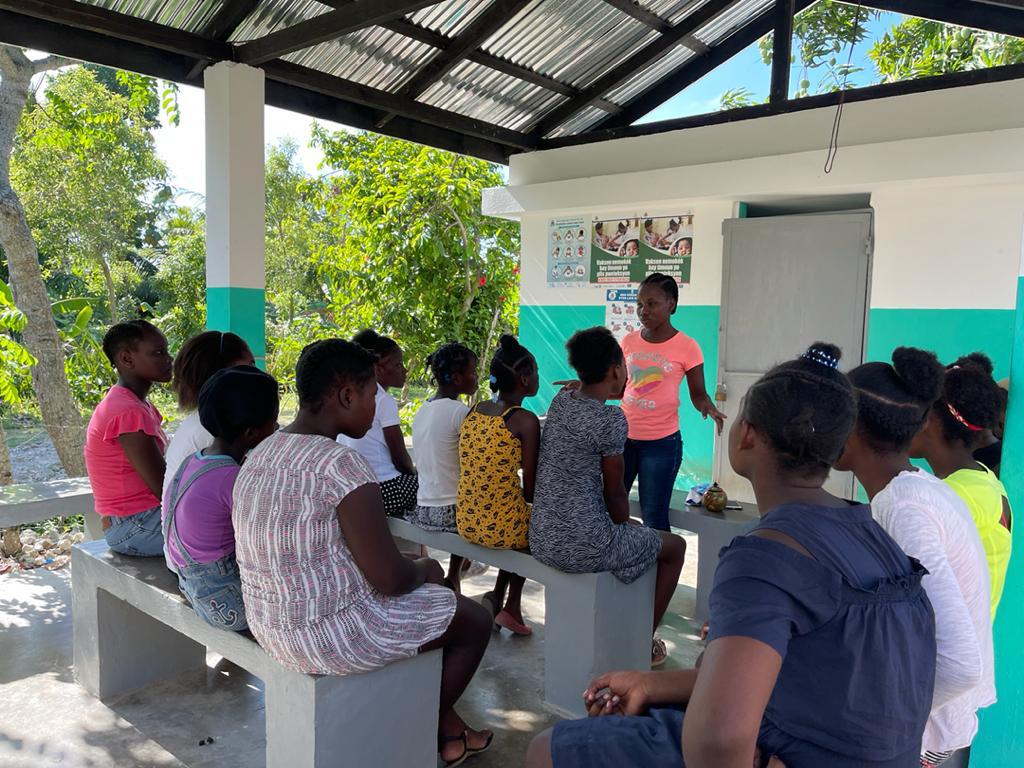
Comprehensive SRH education program in Haiti addresses gender inequality
Care 2 Communities (C2C)’s Managing Director Racha Yehia sat down with Development Coordinator Amanda Fata to discuss the the development of C2C’s new and comprehensive sexual and reproductive health education program that is tailored to its community context in Haiti. This interview highlights why and how C2C developed the program, and how it contributes to C2C’s vision.
“Girls in Haiti, like in many places around the world, are not empowered to make decisions about their sexual health or take ownership of their own bodies. I believe this systemic gender inequity has led to many issues in the country.” – Racha Yehia
Amanda Fata, interviewer: What does C2C do and what is your role with the organization?
Racha Yehia: Care 2 Communities (C2C) is a nonprofit organization that operates a network of primary care clinics in northern Haiti. C2C is different from traditional aid models for two main reasons:
- We have a public-private partnership with Haiti’s government—rather than building new clinics, we work with the Ministry of Health to rehabilitate existing public clinics. This approach improves the quality of primary care services offered and increases access to care for poor and low-income people, empowering families to lead healthier lives.
- We have a social enterprise community-based healthcare model that delivers results for under-resourced communities. We provide high-quality, affordable, patient-centered care through seven clinics that operate as social businesses. Over time, they begin to financially sustain themselves, ensuring that people get the health care they need today and in perpetuity.
I started at C2C in 2017 as the Clinic Operations Coordinator and was promoted to Director of Operations in 2018. This past year, I was chosen to lead C2C directly from the ground here in Haiti as Managing Director. I have been living and working in Haiti for more than six years. I came here to work on strengthening the health system and decided to make Haiti my home. My husband is from Haiti and we have a little girl who we are raising here. I have a strong attachment to Haiti when it comes to my personal and professional life.

Why did C2C choose to design its own comprehensive sexual and reproductive health education course? Why now?
Girls in Haiti, like in many places around the world, are not empowered to make decisions about their sexual health or take ownership of their own bodies. I believe this systemic gender inequity has led to many issues in the country. It’s well known that early unwanted pregnancy is linked to poverty. At C2C, 15% of the patients in our maternal health program are under 18. I see girls coming in for prenatal visits who are 18 or 19 and in their fourth pregnancies, with children from different partners. Not only do these girls not finish their education, they cannot provide for their families. We also see this through our child malnutrition program, where the same girls often return with their children who are suffering medically because they are underweight and not getting the appropriate nutrition. We help them by giving them a nutritional supplement for the child and take the opportunity to educate the mother on healthy and nutritious foods. We offer these services to treat these issues, but our overarching goal is to address the root causes of these issues. Comprehensive sexual and reproductive health education seemed like the natural and best place to start.
“We offer these services to treat these issues, but our overarching goal is to address the root causes of these issues. Comprehensive sexual and reproductive health education seemed like the natural and best place to start.”
We chose to design our own curriculum, working with a Haitian-American psychologist with years of experience in Haiti, because we wanted to make the course fit the context in which we are working. There are many myths and misconceptions that are prevalent in Haiti when it comes to sex—for example, if you have sex in the ocean, you cannot get pregnant; if you drink a beer after sex, you won’t get pregnant; if you have sex with a person with a disability, you will get rich. These myths are harmful and promote risky sexual behavior that harm girls and others.
We also felt that it was important to engage the girls in a way that gets them interested and excited about this information, so that they can take their knowledge and apply it to their lives and share with others as well. There is a section of the course that talks about Rabòday, a popular genre of music in Haiti with lyrics that are very degrading towards women. In this section, we look at some of the lyrics and discuss common themes, how men and women are described in the songs, what stereotypes this genre conveys, and the type of dangers it perpetuates. I hope by learning about how sexism plays into every facet of their lives, they will become more aware of it and work to change it, starting with their own lives and the choices they make.
How did you create the course? What were the steps from when you had the idea to the implementation of the course?
We have been wanting to start this project for several years, so we had quite some time to think about what the course would look like and what our goals would be. In 2020, we were fortunate enough to get funding from Together Women Rise (formerly known as Dining for Women) and the Conservation, Food and Health Foundation to make it a reality. Before moving any further, we surveyed community members, including parents, to get their thoughts about the course and address their concerns. We were happy to find that everyone was accepting and supportive of the project.
We really wanted to create our own curriculum tailored specifically to the girls in our communities, the barriers they face to reproductive health, and their interests. We circulated a job posting for a curriculum writer and were fortunate enough to work with Dr. Elizabeth Louis. We had such a great experience with Dr. Louis that we asked her to join our Board of Directors. We also hired a nurse and social worker to teach the course, since we thought it was important to have young female professionals teach as a team to make the young women feel comfortable with the material and to address any and all questions that the students might have.
“We really wanted to create our own curriculum tailored specifically to the girls in our communities, the barriers they face to reproductive health, and their interests.”
We then spread the word about the program in and around our clinics and through our community health workers. Once all of the participant spots were filled, we held an education session for the parents of the girls so that they could learn more about the curriculum to ask questions and raise concerns. After that, it was time to launch the course.
Q: What was the response from the community? Are there elements of the course that address community-specific challenges?
Before we start any new program, we take the idea to the community first. For this course, we did a feasibility study and interviewed many community leaders—government officials, pastors, teachers, parents, and our own staff. The responses were overwhelmingly positive, even from the church, which is very influential in Haiti. While many may hold traditional values, they see the negative consequences that the lack of sexual education has on the women in their lives. They were eager to have us begin the program. Many of the people we talked to wanted to educate their children on these subjects, but they didn’t know how and many did not have that knowledge themselves.
“While many may hold traditional values, they see the negative consequences that the lack of comprehensive sexual education has on the women in their lives … Many of the people we talked to wanted to educate their children on these subjects, but they didn’t know how and many did not have that knowledge themselves.”
Q: What do you ultimately hope to achieve with this course? What is your vision?
I have big plans for this course. We are currently in our pilot phase: a cohort of 20 girls ages 13-18 enrolled in a 20-week course at six of our clinic sites. Once this course is complete, we will repeat it again for another group of girls. Next year, we will adapt the curriculum for boys. We will still run the two sessions of the class for girls, but we will do a separate one for boys as well. We know that it is critical to include boys in these conversations to help shape their knowledge and behaviors which have a direct impact on their health, their partner’s health, as well their families. The girls’ class and boys’ class will still be separate, so that everyone feels more comfortable asking questions. For year three, we will separate the classes further by age—one class for girls ages 10-14 and another for girls 15-18, and the same for boys. In the fourth year, I want to pilot the course at a local high school to see if we can integrate it as part of a school curriculum, which is unheard of in Haiti. Once we have several years of data, we will pitch the course to the Ministry of Education and my hope is that one day the course is taught in schools throughout Haiti.
Read the full interview on Knowledge Success.
Why Masking Still Matters – Announcing World Mask Week
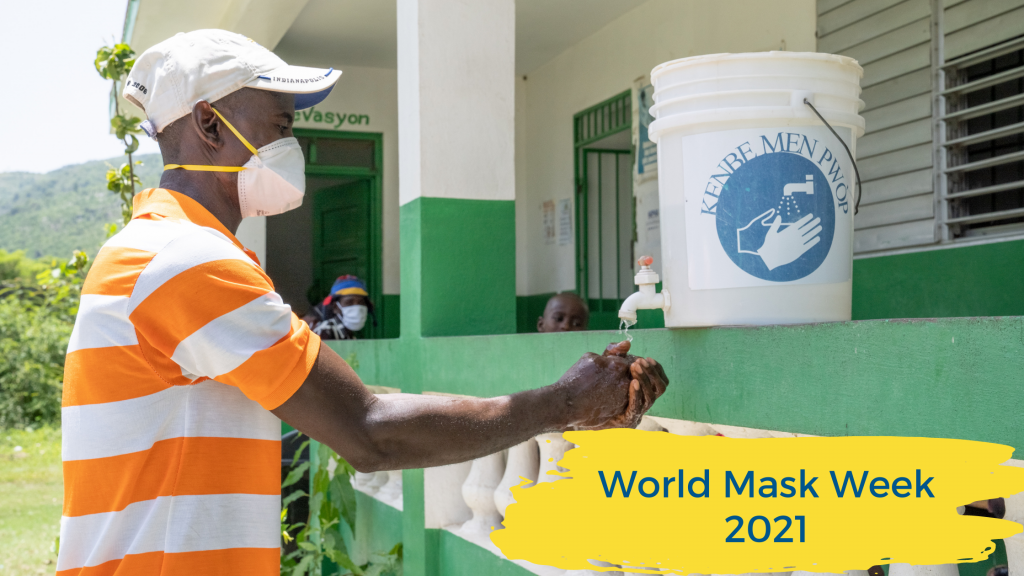
We’re proud to partner with the Pandemic Action Network on World Mask Week 2021. This social-led initiative will begin on Monday, July 12 and conclude on Sunday, July 18.
World Mask Week is a global movement to emphasize the importance of continued masking as we get closer to the end of the COVID-19 pandemic and thank those who have done their part to get us here.
This year is already a deadlier year in the pandemic than 2020, but the context is different. As the pandemic continues amidst fatigue in much of the world, we are increasingly seeing a two-track pandemic where the pandemic persists in some countries and regions while others are lifting restrictions.
Haiti, one of a handful of countries that have not begun vaccination programs, is still waiting for 130,000 doses of the AstraZeneca vaccine that were supposed to be delivered in June, as part of the COVAX program.
COVID-19 cases are on the rise and not under control in Haiti. With the present security situation in Haiti after President Moïse’s assassination, the rollout of the vaccine and measures to mitigate the virus are up in the air.
Wearing a mask in public, in combination with handwashing, slows the spread of COVID-19 and other diseases, especially when most Haitians can’t practice social distancing.
As variants spread around the world, we must stay focused on what keeps us safe. Help us spread mask-wearing messages by getting involved in the #WorldMaskWeek conversation on social media.
Celebrating World Health Day
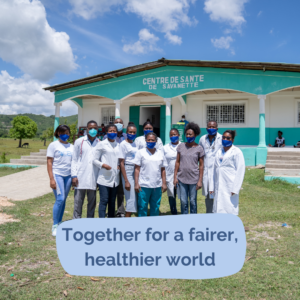
World Health Day is celebrated every year on April 7. This year, the World Health Organization designated the theme for 2021 as “Building a fairer, healthier world,” encouraging leaders to monitor health inequities and ensure that all people can access quality health services when and where they need them.
The world looks very different today from how it did over a year ago, just before the first cases of COVID-19 were reported to the World Health Organization (WHO). The pandemic has changed the lives of everyone around the world. It has affected our physical and mental health but, more than that, it also highlighted the barriers and health inequities that have long existed, especially in vulnerable communities.
“COVID-19 has shown that universal health coverage, strong public health systems and emergency preparedness are essential to communities, to economies, to everyone.” -António Guterres, the Secretary-General of the United Nations says.
Here at C2C, we are ensuring that equity is at the heart of everything we do to improve health and lives. All people throughout the world deserve the chance to live dignified lives free from the burdens of poor health. This starts with quality, accessible primary care.
We stand together with leaders, partners, supporters, and advocates to build fairer, healthier communities by creating access to care in communities that have typically been ignored. Health is a right, not a privilege, and no one should be left behind.
World TB Day: A Q&A with C2C’s Managing Director
Today, C2C recognizes World TB Day. This global day of observance occurs each year on March 24 and commemorates the date Dr. Robert Koch announced his discovery of the bacterium that causes tuberculosis (TB).
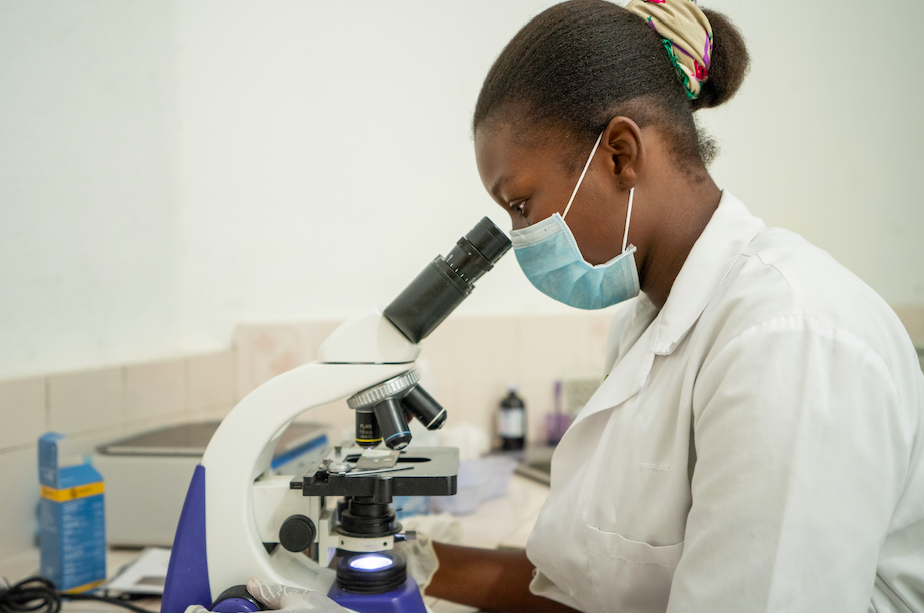
This year’s theme for World TB Day is “The Clock is Ticking”—referring to the commitments made by global leaders to end TB and the urgency still needed to act on this goal. This is especially critical in the context of the COVID-19 pandemic, which has put TB progress at risk, and in ensuring equitable access to prevention and care. Globally, many people still suffer from TB. Here at C2C, we are committed to finding and treating cases of active TB disease, testing and treating latent TB infection to prevent progression, and helping to make TB elimination into a reality.
Part of the solution to this crisis is increased TB education and outreach to healthcare providers, healthcare agencies, and community organizations, especially those serving populations disproportionately affected by it—such as the ones we serve in Haiti. TB is still a life-threatening problem, and it impacts many of our vulnerable communities in Haiti. TB knows no borders, and people all across the world are suffering from it.
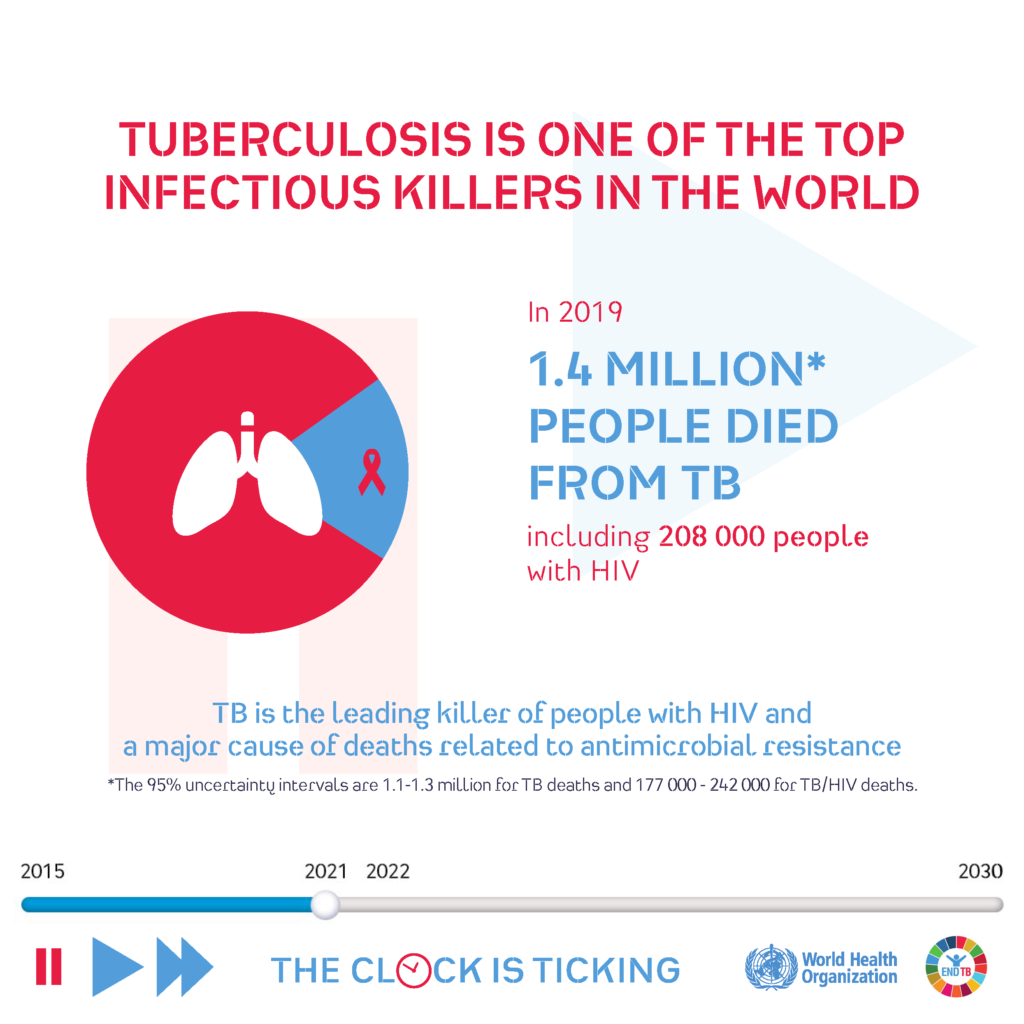
This year for World TB Day, we are sharing a Q&A from our Managing Director, Racha Yehia. Racha is deeply involved in the development and implementation of C2C’s programs and knows firsthand the importance of TB education and medical care.
Q: How does C2C screen for tuberculosis in its clinics?
A: We screen anyone for TB that has had a cough for more than two weeks. We take a sample of three sputum specimens to determine whether the test is positive or negative for TB.
Q: Who takes care of the patients?
A: Our team works together to ensure proper care of TB patients. From the doctor that does the initial screening and explains the disease, to the lab technician that performs the analysis, to the nurse that explains the medication treatment, to the community health worker that goes to the patient’s home to check on their health status—it is all about teamwork!
Q: Can you explain what TB treatment looks like?
A: The duration of treatment and the types of drugs administered depends on the status of the patient. If it is a new case (a person having tuberculosis for the first time) the treatment will last 6 months, if there is no issue with the protocol or relapse. Anti-TB drugs are used as a treatment: RHEZ (Rifampicin (R), Isoniazid (H), Ethambutol (E), and Pyrazinamide (Z)). The treatment regimen consists of 4 months of RHEZ followed by 2 months of RH. If the patient has multidrug-resistant tuberculosis (MDR-TB), another treatment protocol will be used, which will last between 9 to 12 months. The lab material and medication to diagnose and treat TB patients are all provided for free by the Ministry of Health. Along with malaria and HIV/AIDS, TB is one of the three diseases for which treatment is fully subsidized by the government.
Q: Can anyone get TB?
A: Anyone can catch TB, but the majority of cases we encounter are people that have an underlying disease such as diabetes, respiratory problems, asthma, HIV/AIDS, or malnutrition. Also, people with poor personal hygiene habits have higher chances of getting TB.
Q: How is TB viewed in Haiti?
A: It is considered the disease of poor people and has several Creole nicknames: maladi ti kay, maladi kenhenk kenhenk, maladi touse, maladi zepol kare. People with tuberculosis are stigmatized, especially by those around them. Many hide the fact they have TB from the community they live in or go to other neighboring regions to be treated so they are not recognized. Despite the TB treatment being free of charge, there is still a lot of stigmatization towards the disease. Patients have a hard time accepting they have the disease and following the TB protocol. Most prefer ignoring their diagnosis, not taking their medication, and letting their health worsen. Our biggest challenge at C2C when trying to fight TB is to bring awareness and educate the population on the disease in the different communities we serve, which helps reduce stigmatization, as well as ensuring that our TB patients adhere to the regimen of taking their medication for the required duration. With the regular home visits that we have as part of our community health program, we do our best to ensure their full recovery.
Reflecting on one year of COVID-19: A letter from C2C’s Managing Director in Haiti
Two years ago, life in Haiti seemed normal yet still consisted of many struggles, from poverty and lack of education & healthcare, to political uprisings and a continuously crashing economy. Fast forward to 2020, and still the same struggles endured amid a global pandemic. The unknown loomed in a country with clustered public transportation, where pickup trucks are often filled with 20+ people packed together. How do people practice social distancing in such an environment? Well, they simply cannot. Out of necessity, life had to continue without the possibility of precautions for the masses. A lucky few could afford social distancing—which remains a luxury.
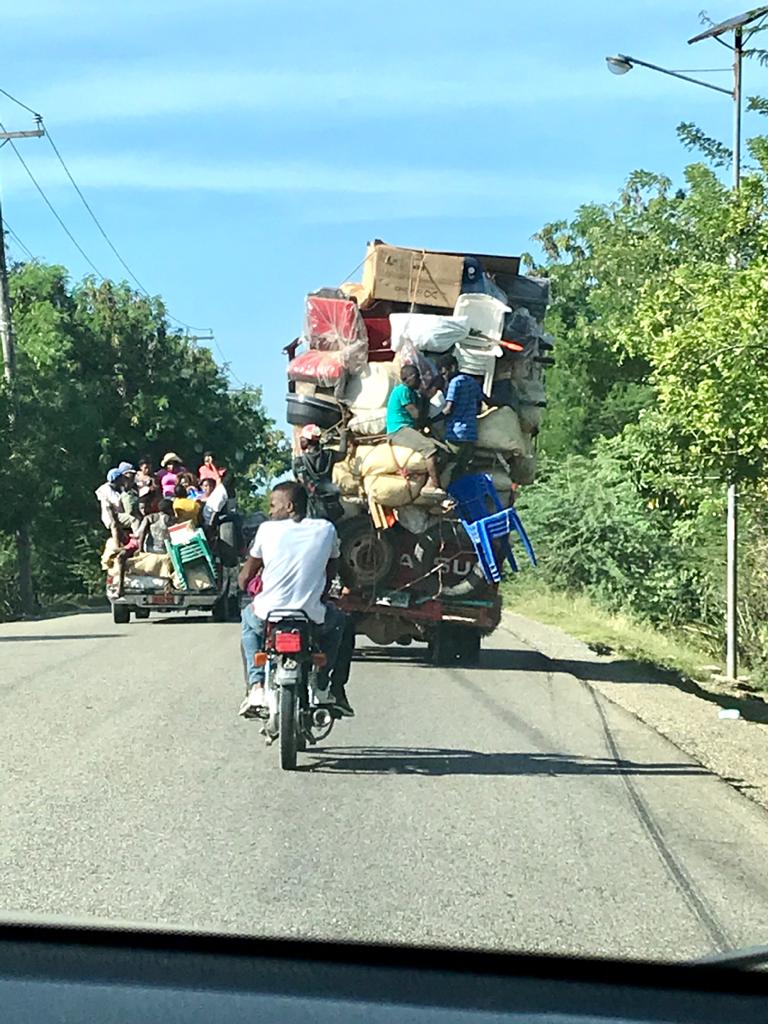
Today, one year since the first cases of COVID-19 were recorded in Haiti and the first wave began, the country has somehow been spared the worst. In a population of almost 12 million people, less than 13,000 positive cases have been confirmed and 250 deaths. In contrast, Haiti’s neighbor, the Dominican Republic, has faced 247,000 positive cases and more than 3,000 deaths. The reason for this drastic difference remains unknown. We can speculate that it is due to Haiti’s very young population, where fifty percent are under 23 years of age. We can make guesses that herbal medicine has treated unknown cases or we rapidly reached herd immunity. We can continue to speculate but the truth is that we still do not know.
Luckily for us at C2C, we do have the resources to keep our staff and patients safe. We are able to provide an environment where social distancing is practiced, hand-washing stations are available, and educational material on prevention and mitigation of COVID-19 are shared. Within the past year, behavior towards the virus has gone from people instigating violence or harm towards individuals who admitted to having symptoms and institutions trying to protect the population from the spread of the virus, to people believing that there is no more COVID-19 in Haiti. All of these thoughts and ideas were driven by lack of knowledge about the virus. From day one, C2C has worked to bring awareness to the issue and educate our patient population on the precautions that should be taken to reduce the spread. We know that health education plays an important role in fighting the COVID-19 myths that erode trust in healthcare. For that reason, we continue to educate our patients and the communities we serve until this day.
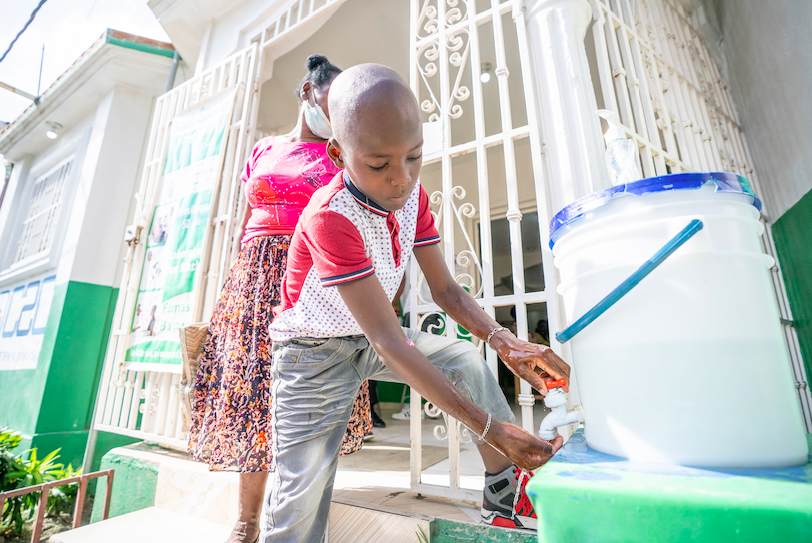
During the summer of 2020, the government lifted all restrictions related to the virus and the country got back to ‘normal’ life. However, at C2C we felt that we needed to continue to provide the necessary resources to reduce the spread of COVID-19. Together, we worked with our community leaders to create a safer environment for our patient population when it came to their daily routines. We provided more than 50 buckets to be used as washing stations that were placed at churches, school entrances, and in areas with a high population density. As part of our continued campaign to reduce the spread of COVID-19, we are currently still installing more than 100 tippy taps in the communities we serve.
The reality is that we are still going through a global pandemic and no matter what the data says, precautions still need to be taken daily. We have come a long way since the first case was reported in the country exactly a year ago and we are proud to have kept all our clinic doors open to serve the communities that need it the most.
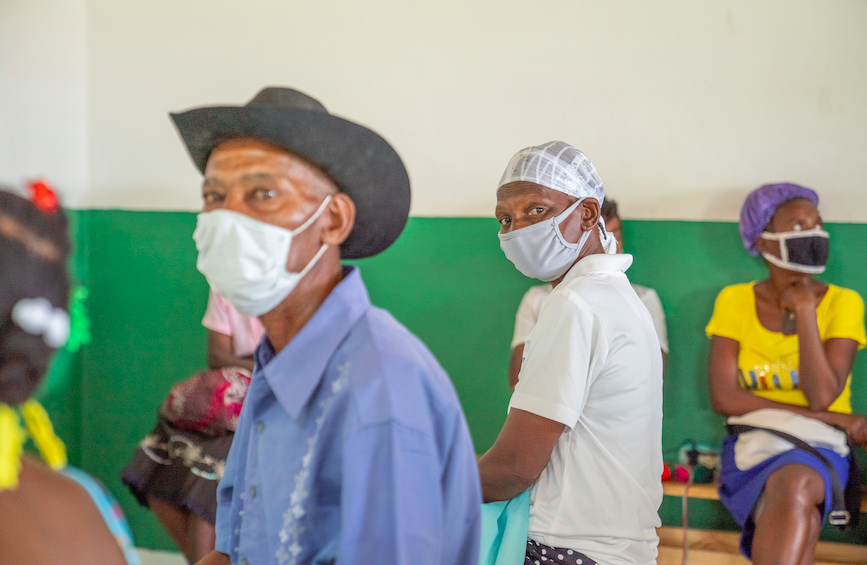
As we continue to fight COVID-19, our mission remains unchanged. We will continue to ensure that vulnerable communities in Haiti have access to high-quality care to safeguard the health of themselves and their families.
Thank you to everyone who has supported C2C during this difficult time. Our work would not be possible without your generosity! To learn more about how your donations are protecting our communities against the threat of COVID-19 and to continue to help us do this necessary work, click here!
Sincerely,
Racha Yehia
Managing Director
